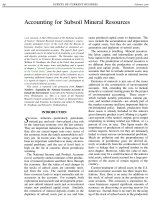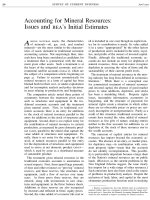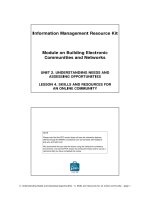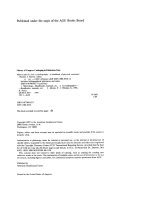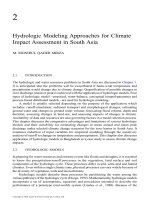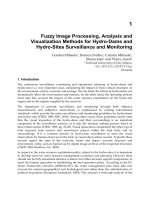Mineral resources 2
Bạn đang xem bản rút gọn của tài liệu. Xem và tải ngay bản đầy đủ của tài liệu tại đây (262.61 KB, 10 trang )
Minerals
Notes….
Minerals
Minerals are elements other
than carbon, hydrogen,
nitrogen, and oxygen which are
needed for good health.
Minerals are micronutrients.
Minerals are inorganic
substances.
Minerals must be present in the soil in which
food is grown in order to be incorporated
into the food.
We also obtain some minerals from the
water we drink, but the amounts vary widely.
Mineral availability and absorption is also
affected as foods are cooked, processed and
refined, and many naturally occurring
minerals in food are removed.
Moderation:
Minerals work in combination with each
other and with other nutrients, so
imbalances of any mineral can cause
health problems – too little of any
essential mineral can lead to deficiency
diseases, and too much of any mineral
can be toxic.
Essential Minerals
Essential minerals are sometimes divided
up into major minerals (macrominerals)
and trace minerals (microminerals).
These two groups of minerals are equally
important, but trace minerals are needed
in smaller amounts than major minerals.
The amounts needed in the body are not
an indication of their importance.
Major minerals
Major minerals are those needed
in amounts greater than 100 mg
per day.
Major minerals are sulfur, calcium,
phosphorus, sodium, potassium,
chlorine, and magnesium.
Minor minerals
The minor minerals are needed in
trace amounts - less than 100 mg per
day.
These metal ions are incorporated
into enzymes, hormones, and other
molecules.
They include iron, fluoride, zinc,
copper, selenium, manganese, iodine,
molybdenum, chromium, and cobalt.
Electrolytes
Minerals in the body that carry an electric
charge.
Function: regulate the amount of water in
your body, blood pH, muscle action.
Electrolytes can be measured by
laboratory studies of the blood serum.
The electrolytes are sodium, chlorine and
potassium.
Minerals: macro, trace, non-essential
trace, & electrolytes
Boron
Calcium
Chlorine
Chromium
Cobalt
Copper
Fluoride
Iodine
Iron
Magnesium
Manganese
Molybdenum
Phosphorus
Potassium
Selenium
Sodium
Sulfur
Zinc
RDA
Mineral
RDA
Boron
Mineral
RDA
Phosphorus
1,000mg
Calcium
1,000mg
Potassium
No RDA
Chlorine
No RDA
Selenium
No RDA
Chromium
120mcg
Sodium
No RDA
Sulfur
No RDA
Zinc
15mg
Cobalt
Copper
2mg
Fluoride
No RDA
Iodine
150mcg
Iron
18mg
Magnesium
400mg
Manganese
2mg
Molybdenum
75mcg


